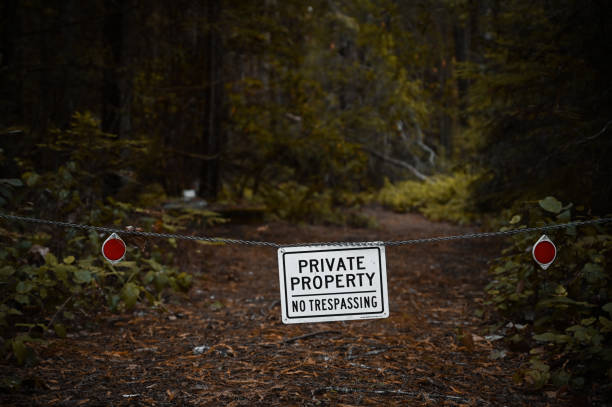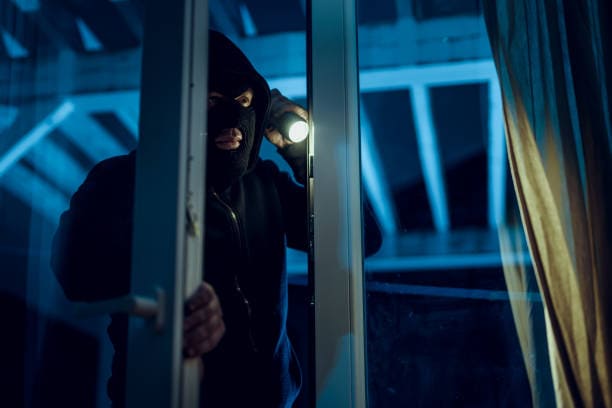Trespassing is a criminal offence in New South Wales. Our property or houses are our safe haven where we can relax and unwind. However, some strangers may end up lurking around and are intent on gaining uninvited entry.
Trespassing laws exist to protect our most basic right: the right to feel safe and secure in our own homes. But what exactly constitutes trespassing, and what are the legal ramifications for those who violate this right?
The state of New South Wales has specific laws and regulations regarding trespassing, so it is important to understand them to avoid any legal complications.
Trespass and Break and Enter
The Inclosed Lands Protection Act 1901 governs offences relating to trespass, and the Crimes Act 1900 regulates break and enter offences. We may sometimes use these two concepts synonymously, but the law that governs these offences vary.
Trespassing is like waltzing onto someone’s property uninvited. It can be entering a place without permission or sticking around after the owner tells you to leave. If you stay and linger around, you can land with a fine or even jail time.
Section 4 of the Act states that a person who comes into your property to bring a package or pay a visit is not breaking the law. However, you may ask someone to leave a property you own or live in and they are under obligation to leave. It is also illegal for them to stay after the owner has asked them to leave.
Let’s look at three more acts that the Crimes Act 1900 deems punishable:
- First on the list is breaking, entering, and assaulting with intent to murder (Section 110)
- Breaking and entering a dwelling house with intent to commit a serious indictable offence (Section 111 and 112)
- Breaking, entering, and committing a serious indictable offence (Section 113)
What Is an Occupier?
Aside from the property owner, anyone who is a “occupier,” can avail of the law of trespass. If someone enters your property without your permission, you have the right to ask them to leave under the law. They are trespassing if they refuse to leave when asked to do so. You may also use reasonable force to remove them from your property.
‘Occupier’ is a term often used in legislation. It pertains to the people who are actually residing or inhabiting the property. Therefore, depending on the situation, it may be the owner, tenant, licensee, or another person who has permission to occupy the property. Occupation does not confer any special property rights on the occupier.
NSW Legislations Related to Trespassing
In New South Wales, there are various legislations that are related to trespassing.
- Access to Neighboring Land Act 2000. This law allows a person to enter another person’s property upon application to the Local Court for an order allowing entry onto the neighbouring land.
- Conveyancing Act 1919. This Act provides for the requirements for creating, modifying and extinguishing easements. An easement is a right to use a certain part of someone else’s land, like a right of way across a neighbor’s property.
- Crimes Act 1900. The Act punishes a person with a minimum or maximum penalty who breaks and enters a residential house or any other building and commits or intends to commit an indictable offence. The law also provides for an imprisonment for 14 years as a penalty for such violation.
- Dividing Fences Act 1991. This law aims to regulate neighbour’s responsibilities towards dividing fences and help them settle disputes without further escalation.
- Inclosed Lands Protection Act 1901. This Act punishes any person who enters a fenced or enclosed property for unlawful entry and offensive conduct.
- Summary Offences Act 1988. Under the Summary Offences Act a person must not enter into, or remain in someone’s house or yard, or business premises without their permission. This is the case unless they have a lawful reason to be there.
Penalties for Trespassing in New South Wales
Trespassing or breaking and entering are serious offences in NSW that carry severe consequences. Here are the penalties for each corresponding offence under the Crimes Act 1900:
- Break and enter with intent to murder (Section 110) – 25 years of imprisonment to enter a dwelling house and commit an assault with intent to murder or inflict grievous bodily harm.
- Enter dwelling house with intent to commit an indictable offence (Section 111) – Maximum of 10 years of imprisonment
- Enter dwelling house and commit a serious indictable offence (Section 112) – Maximum of 14 years of imprisonment
- Enter dwelling house with intent to commit a serious indictable offence (Section 113) – Maximum of 14 years of imprisonment

How To Prevent Trespassing on Your Property in NSW?
Trespassing on your property can be a nuisance and potentially dangerous for you and your family’s normal enjoyment. Nuisance occurs where there is an unintentional but continual activity that causes damage and interference.
For example, the highway is a public place which the public may enjoy for any reasonable purpose, providing that the activity in question does not amount to a public or private nuisance. Here are some ways to prevent it from happening:
- Install Fencing: Installing a fence around your property is an effective way to prevent trespassing. Make sure the fence is strong and high enough to discourage trespassers from climbing over it.
- Post Signs: Posting signs that indicate private property or no trespassing can help deter people from entering your property.
- Secure Gates: If your property has a gate, make sure you lock it, and it is secure at all times. Consider installing a gate with a keypad or remote control access to further increase security.
- Install Security Cameras: Installing security cameras can help deter trespassers and also provide evidence if trespassing occurs.
- Keep Property Maintained: Keeping your property well-maintained can help deter trespassers. For example, you should trim overgrown bushes and trees that could provide cover for trespassers.
- Hire Security: If you have a large property or feel that trespassing is a significant threat, consider hiring security personnel to monitor your property.
- Do Not be Negligent: The level of this duty is expected of a reasonable person exercising foresight and caution. If you fail to take reasonable precautions to prevent reasonably foreseeable harm and the harm happens, you can be sued for damages.
By taking these steps, you can help prevent trespassing on your property and ensure the safety of yourself and your family.
What if the Police Entered My House?
The police can enter your property only when it is reasonably necessary to:
- Investigate whether a domestic violence offence was committed;
- Assist an injured person;
- Exercise lawful power to arrest someone; or
- Prevent the commission of a domestic violence offence.
NSW vs. Ibbett Case [2006 HCA 57]
Two police officers went way overboard in their pursuit of young Warren Ibbett, who had a past involving drugs. Even though they had no reason to suspect he was carrying drugs now, they chased him at high speed.
Warren, trying to escape the unnecessary chase, drove to his mom’s house, his usual residence, and pulled into the garage. When he opened the door, one officer who was undercover and out of uniform, did a reckless move by rolling under the closing garage door and then jumping up, yelling and waving his gun around.
This commotion then woke up Warren’s mom, Dorothy. Confused, she entered the garage only to be met by a police officer holding a gun and ordering her to open the door for his partner.
Thankfully, no drugs were found after a more extensive search with additional officers. Because the initial pursuit and actions in the garage were completely unjustified, the state acknowledged the officers committed trespass and assault.
The court awarded Dorothy not just regular damages, but also additional compensation for the emotional distress caused by the officers’ outrageous behavior. This case highlights the importance of protecting people’s right to feel safe and secure in their own homes, free from unlawful entry and aggressive actions by strangers, even if those strangers are police officers.

Legal Help for Trespassing Cases in NSW
Trespassing is a serious offence in NSW. Since trespassing can cause property damage or personal harm, it is important that individuals facing such charges seek legal help. Individuals facing trespass charges should seek the services of a criminal lawyer.
Our team of experienced criminal lawyers at JB Solicitors can provide legal advice, represent the individual in the local or supreme court, and negotiate on their behalf. Seeking legal assistance can help individuals facing trespassing charges to navigate the legal system and achieve a fair outcome.
Contact us today if you need to take legal or civil action against trespassers.
